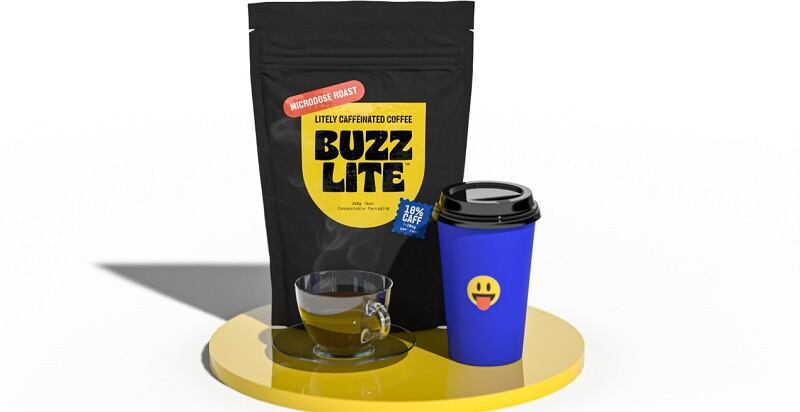According to a study published February in the Journal of Sleep Research, clinically meaningful sleep difficulties increased to 50.5% of the 5,525 Canadians surveyed between April 2 and June 24, 2020, compared to 36% before the coronavirus outbreak. Women in particular are more likely to struggle with sleep changes, along with people who have a chronic illness, are employed, have family responsibilities, use alcohol heavily and are exposed to more television. Of the three distinct sleep changes identified in the study, “reduced time in bed and delayed sleep … had more adverse sleep outcomes and psychological changes during the outbreak.”
The researchers, led Rébecca Robillard, an assistant professor and co-director of the Sleep Laboratory of the School of Psychology at the University of Ottawa, recommended several strategies for improving sleep duration and quality during the pandemic – including limiting caffeine.
But for consumers who rely on an afternoon cup of coffee to sustain them through the day or use it as a mental health break to hit reset before pushing forward, giving up the energizing and comforting benefits of coffee may not be a viable option.
For them, industry newcomer Buzz Lite’s unique blend of 90% decaffeinated and 10% caffeinated beans could offer a way to enjoy the benefits of coffee without the negative tradeoffs, according to the startup’s founder Andrew Cooper. With a micro-dose of 20mg of caffeine per cup, he touts Buzz Lite's Microdose Roast as a perfect “post-2 pm pick-me-up that will keep you grooving without the jitters or losing zzz’s.”
A diverse market opportunity
Cooper says the inspiration for Buzz Lite came from watching co-workers at his previous job drink upwards of five or six cups of coffee a day to stay active and alert, even though their habits sometimes made them feel anxious or made it difficult to sleep at night.
Likewise, he said, there are consumers, like himself, who are sensitive to caffeine, or pregnant women, athletes and others who want to cut back – but not cut out – the stimulant. However, most don't know how to scale back safely or accurately because they don’t know how much caffeine is in a cup of coffee brewed at home or served out.
“A lot of people don’t understand how much caffeine they are getting in a cup of coffee. If you Google search for how much caffeine is in a normal cup of coffee, 100 mg comes up most often. But if you look at big brands that publish their caffeine amounts, like Starbucks, you get more than 100 mg in an eight-ounce cup, and most people aren’t getting that eight-ounce cup, they are getting a larger serving and are getting closer to 200 to 350 mgs per serving,” Cooper said. But, he emphasized they don’t know.
For consumers who want to know exactly how much caffeine they are getting, Buzz Lite offers transparency and knowledge that allows them to make decisions that are best for their needs at any given moment.
A clean label and bold flavor
Buzz Lite offers more than a clear label – it also offers a clean label and bolder flavor profile than most other decaffeinated or low-caffeine coffees, according to Cooper, who attributes the ability to do this to using a sugar cane decaffeination process. This process skips the chemical solvents that turn off some consumers and uses instead sugar cane to create an ethanol compound to decaffeinate the beans.
“Typically with decaffeination you would use a chemical solvent to pretty much soak the beans – removing all the flavor along with the caffeine,” Cooper said, adding some consumers worry the chemicals also could be bad for the environment or have residual effects on them.
“Another option is the Swiss Water decaffeination process, which uses a similar process to sugar cane decaffeination, but, based on my experience, the taste isn’t quite there versus the sugar process,” he said.
Consumers also can feel good about Buzz Lite’s choice of sugar cane decaffeination because the sugar used comes from the same “neighborhood” in Jerico, Columbia, where Cooper says he sources the two beans used in the coffee and where the decaffeination occurs.
“It’s all happening within the community, which is pretty cool,” he said, adding the central location also allows Buzz Lite to better control the flavor profile.
‘I am fully committed to this’
Like many startups that launched during the pandemic, Buzz Lite is currently sold online through its website – a strategy that allows it to educate consumers about the brand’s unique proposition, but which Cooper acknowledges doesn’t provide the broad distribution reach needed for significant impact and scale.
“I am fully committed to this and it is my full time job, so I want to grow the business and by extension grow the category,” and bring new consumers into the coffee and hot beverage aisle at retail, he said. But to make this happen he says he will need seed stage funding.
As he works on building sales and verifying the initial proof of concept many investors will want to see, he adds that he is doing something that hasn’t been done before.
“This is a category that people have been sleeping on because decaf hasn’t been seen as cool,” but now consumers are increasingly in tune with their bodies and health and less willing to settle for the status quo, he said. For them, Buzz Lite offers a new solution that delivers the bold flavor and benefits of the coffee they have always loved, but without the negative short and long-term health consequences.




